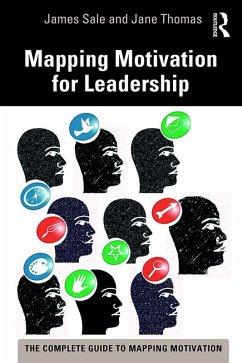
Tools and Techniques of Leadership and Management (eBook, PDF)
Meeting the Challenge of Complexity
Versandkostenfrei!
Sofort per Download lieferbar
51,95 €
inkl. MwSt.
Weitere Ausgaben:

PAYBACK Punkte
26 °P sammeln!
Many of today's books on the tools and techniques of leadership and management provide descriptions of long lists for use in decision-making, leading, coaching and project management. This book takes a completely different approach. It contests the claims that the tools and techniques are based on evidence and explains why human activities of leading and managing are simply not amenable to scientific proof and consequently, why long-term futures of organizations are unpredictable.The book undertakes a critical exploration of just what these tools and techniques are about; showing that while th...
Many of today's books on the tools and techniques of leadership and management provide descriptions of long lists for use in decision-making, leading, coaching and project management. This book takes a completely different approach. It contests the claims that the tools and techniques are based on evidence and explains why human activities of leading and managing are simply not amenable to scientific proof and consequently, why long-term futures of organizations are unpredictable.
The book undertakes a critical exploration of just what these tools and techniques are about; showing that while they may lead to competent performance they cannot go further to expert performance because expertise involves going beyond rules and procedures. Ralph Stacey investigates the many questions that are thrown up as a result of this new approach. Questions such as:
This book will be relevant to students on courses and modules that deal with leadership, decision-making and organizational development and behaviour as well as professional leaders and managers who want to develop their own understanding and techniques.
The book undertakes a critical exploration of just what these tools and techniques are about; showing that while they may lead to competent performance they cannot go further to expert performance because expertise involves going beyond rules and procedures. Ralph Stacey investigates the many questions that are thrown up as a result of this new approach. Questions such as:
- How do we apply this new way of thinking?
- What are the practical tools and techniques it gives us?
- What is the role of leaders in an unpredictable world?
- How does complexity affect the way organizations are structured and function?
This book will be relevant to students on courses and modules that deal with leadership, decision-making and organizational development and behaviour as well as professional leaders and managers who want to develop their own understanding and techniques.
Dieser Download kann aus rechtlichen Gründen nur mit Rechnungsadresse in A, B, BG, CY, CZ, D, DK, EW, E, FIN, F, GR, HR, H, IRL, I, LT, L, LR, M, NL, PL, P, R, S, SLO, SK ausgeliefert werden.













